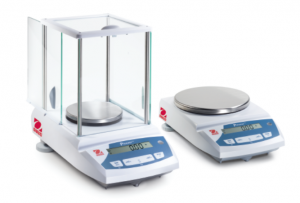Weight plays a critical role in the industrial sphere, including every detail from product purchase and sales to shipping and receiving. In order to keep up with technology advancements, industries need their weight management to be accurate and efficient, which is where precision weighing systems come into play.
Possibly the main advantage of precision weighing systems is that all calculations are performed within the system, which not only allows for remote control but also greatly reduces human error. In order to successfully utilize your precision weighing system to its full extent with the lowest risk of error, there are a variety of factors to consider to ensure that it’s handled properly.
What is a Precision Weighing System?
A precision weighing system can take several forms but all typically include:
- Load cells (to support a weigh platform or vessel)
- A junction box
- A weight controller
When a load is applied to a platform, some of the load is transmitted to each load cell, which sends an electrical signal with the weight of the load it senses to the junction box. From there, the load cell signals are collected in the junction box and sent to a weight controller via a large cable. This converts the signal into a weight reading for users to analyze.
The accuracy of each weight reading can be affected by a variety of system components, including operation environment and quality. Although precision weighing systems are highly accurate and often eliminated of human error, it’s important to consider all factors that can affect the accuracy of readings and take the necessary steps to remove them.
Factors That Affect Weighing Accuracy
Determining how your precision weighing system will be affected by various operational factors once it’s up and running is a large part of its overall accuracy. The main factors to consider include:
- Environmental
- Load Factors
- Signal Transmission Interference
Environmental
Be sure that only true weight force is transmitted to each load cell and that environmental forces aren’t being taken into account. Forces can include but aren’t limited to:
- Vibration
- Temperature changes
- Wind loading
- Shock loading
- Pressure differences
These can all produce errors in load cell signals if not handled appropriately, so you’ll want to keep a close watch for any changes caused by environmental factors.
Load Factors
Selecting the highest-quality load cell for your precision weighing system is the most important step in weight accuracy. For the most accurate weighing, load cells alone must be able to support all the weight that is being measured. Ensure that the load is properly applied to each load cell – any load that is improperly applied (for example, if a load is twisting) can cause strain and change load proportions. Making sure that each load point is aligned and level to allow them to share the load equally. Noting that the structure under the load cells doesn’t flex or move under the weight of the load is another crucial accuracy factor.
Signal Transmission Interference
An electrical signal is equally as important as weight when it comes to load cell measurements. Ensuring the weight controller measures only the electrical signal and doesn’t include interferences can help with a more accurate outcome. Interferences that affect electrical signals can include:
Moisture – This can reduce communication between signal lines and create electrical noise that affects weighing accuracy
Temperature – Any fluctuations in temperature can cause resistance changes in the cable, in turn causing load cell signal changes
RFI (Radio Frequency Interference) and EMI (Electromechanical Interference) – These are electrical noises such as lightning, large power lines, static electricity, or two-way radios, that can interfere with the load cell signal accuracy
Working with Precision Weighing Systems
The greatest advantage of working with precision weighing systems is that, when utilized properly, they can greatly reduce or even eliminate human error due to their high level of digital accuracy. All calculations are performed in the system, and the data can then be transferred into a computer or storage device. In addition to this, control of a digital precision weighing system can be done in person or remotely through the software connected to the scale, which can significantly improve the working process.
If you are looking for accuracy and automation, the choice between a digital precision weighing system or a manual platform scale is a no-brainer.
Wondering if utilizing precision weighing systems is what your application needs? Contact the experts at Worcester Scale today to speak with one of our representatives today.



Leave a Reply